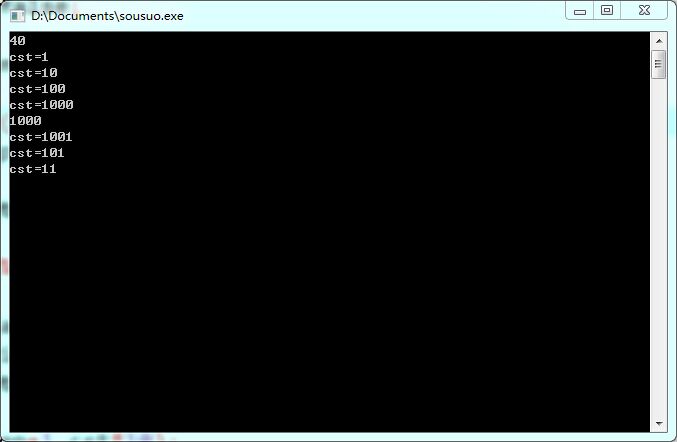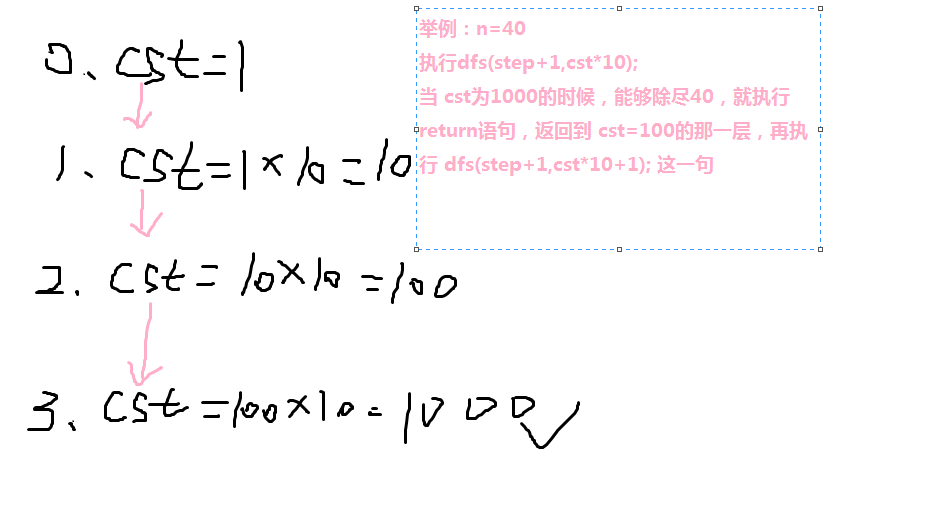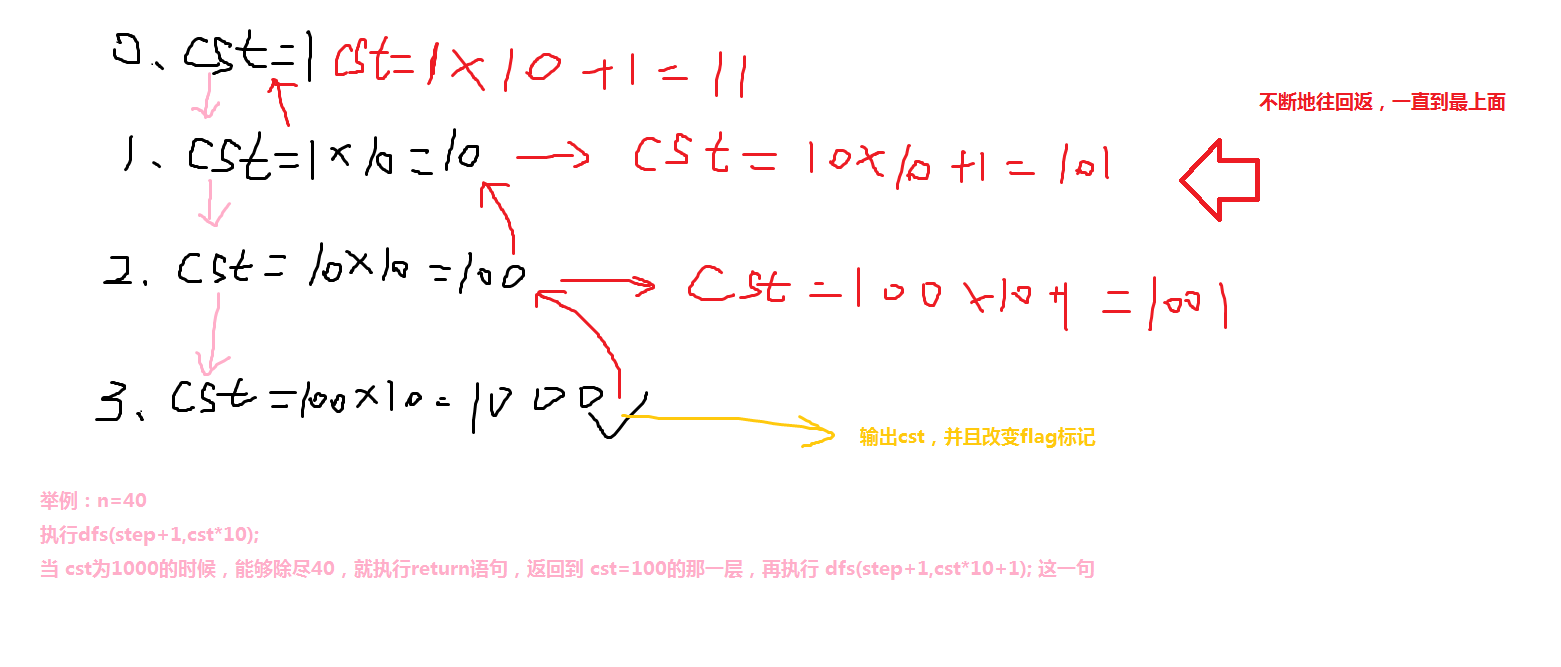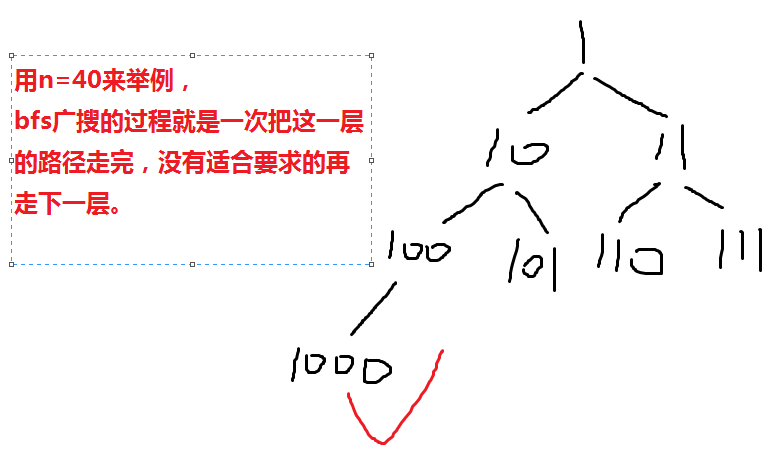E - Find The Multiple
Given a positive integer n, write a program to find out a nonzero multiple m of n whose decimal representation contains only the digits 0 and 1. You may assume that n is not greater than 200 and there is a corresponding m containing no more than 100 decimal digits.
Input The input file may contain multiple test cases. Each line contains a value of n (1 <= n <= 200). A line containing a zero terminates the input.
Output For each value of n in the input print a line containing the corresponding value of m. The decimal representation of m must not contain more than 100 digits. If there are multiple solutions for a given value of n, any one of them is acceptable.
Sample Input 2 6 19 0Sample Output
10 100100100100100100 111111111111111111



#include<stdio.h>
#include<string.h>
#include<stdlib.h>
#include<iostream>
#include<algorithm>
using namespace std;
bool flag=false;
int n;
void dfs(int step,long long cst)
{
// printf("cst=%lld\n",cst); 验证搜索过程
if(step==19 || flag)
{
return ;
}
if(cst%n==0)
{
flag=true;
printf("%lld\n",cst);
return ;
}
dfs(step+1,cst*10);
dfs(step+1,cst*10+1);
}
int main()
{
while(scanf("%d",&n),n)
{
flag=false;
dfs(0,1);
}
return 0;
}
#include<stdio.h>
#include<stdlib.h>
#include<iostream>
#include<algorithm>
#include<string.h>
#include<queue>
using namespace std;
int n;
void bfs(long long int cst)
{
queue<long long>Q;
Q.push(cst);
while(Q.size())
{
long long y=Q.front();
Q.pop();
if(y%n==0)
{
printf("%lld\n",y);
return ;
}
Q.push(y*10);
Q.push(y*10+1);
}
}
int main()
{
while(scanf("%d",&n)!=EOF)
{
if(n==0)
break;
bfs(1);
}
return 0;
}




 本文介绍了一个编程问题:给定一个正整数n,如何找出一个只包含0和1的非零倍数m。通过深度优先搜索(DFS)和广度优先搜索(BFS)两种方法实现了这一目标,并提供了完整的C++代码示例。
本文介绍了一个编程问题:给定一个正整数n,如何找出一个只包含0和1的非零倍数m。通过深度优先搜索(DFS)和广度优先搜索(BFS)两种方法实现了这一目标,并提供了完整的C++代码示例。

















 被折叠的 条评论
为什么被折叠?
被折叠的 条评论
为什么被折叠?








